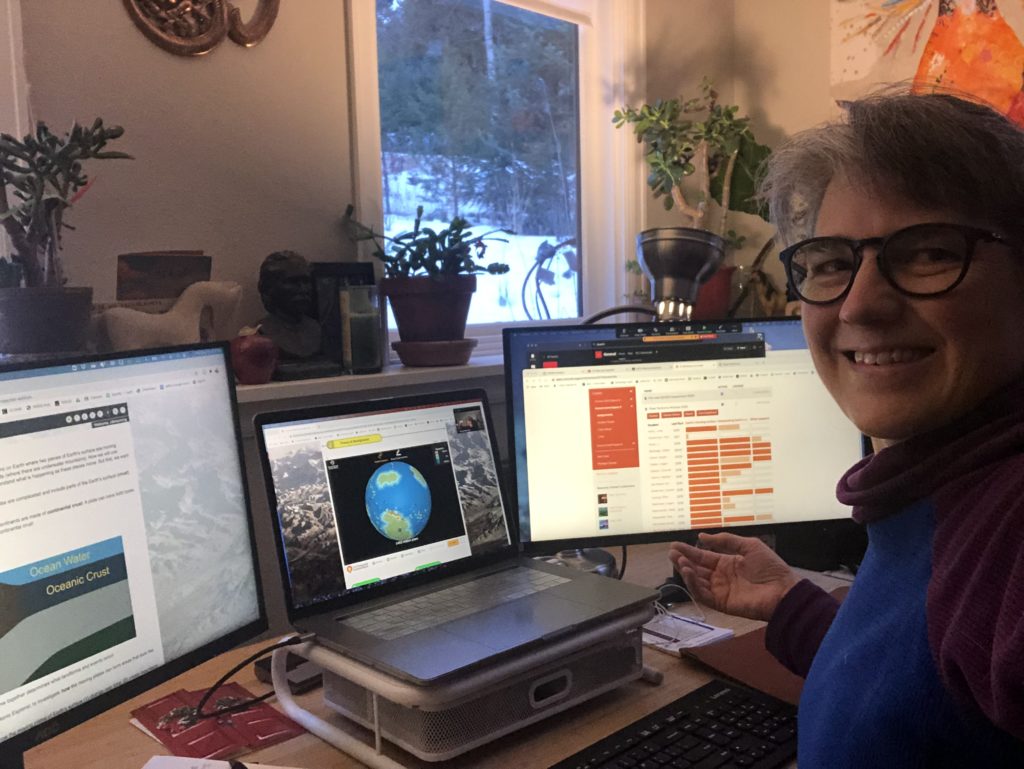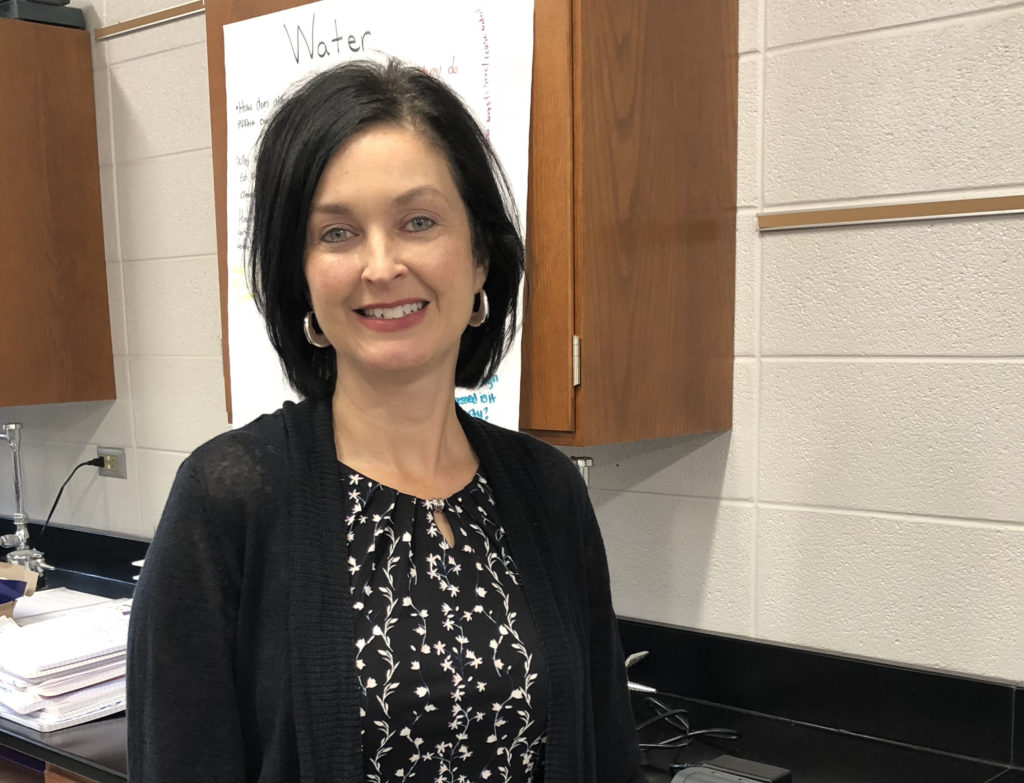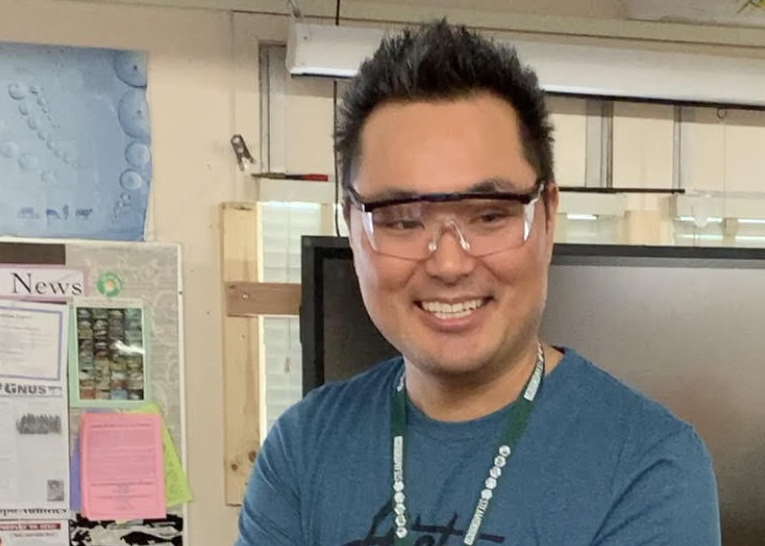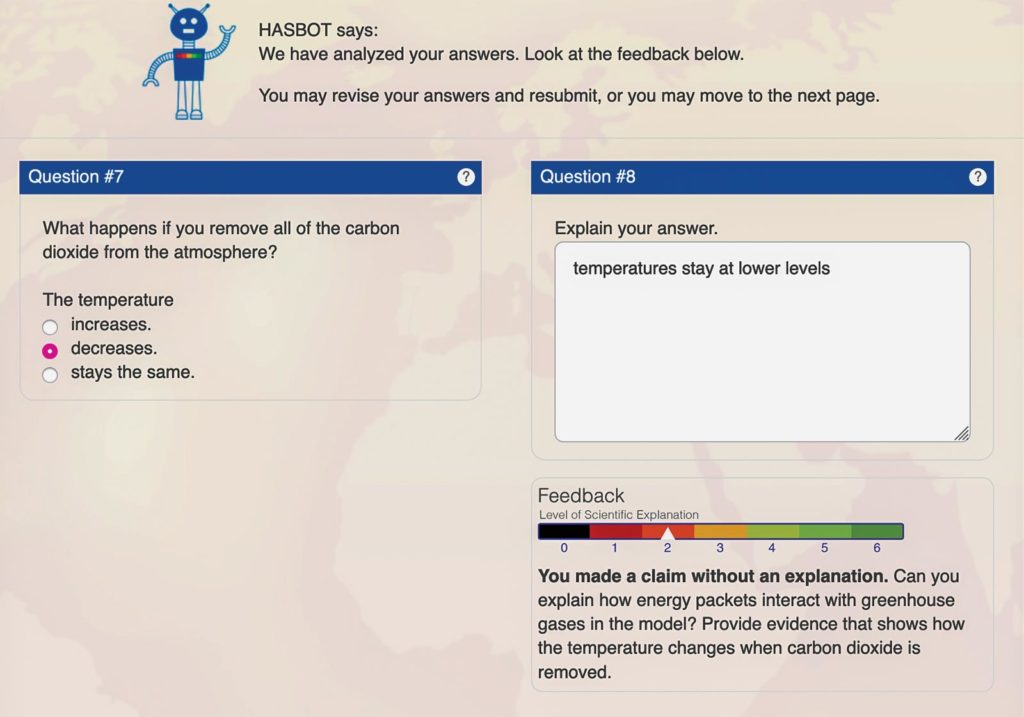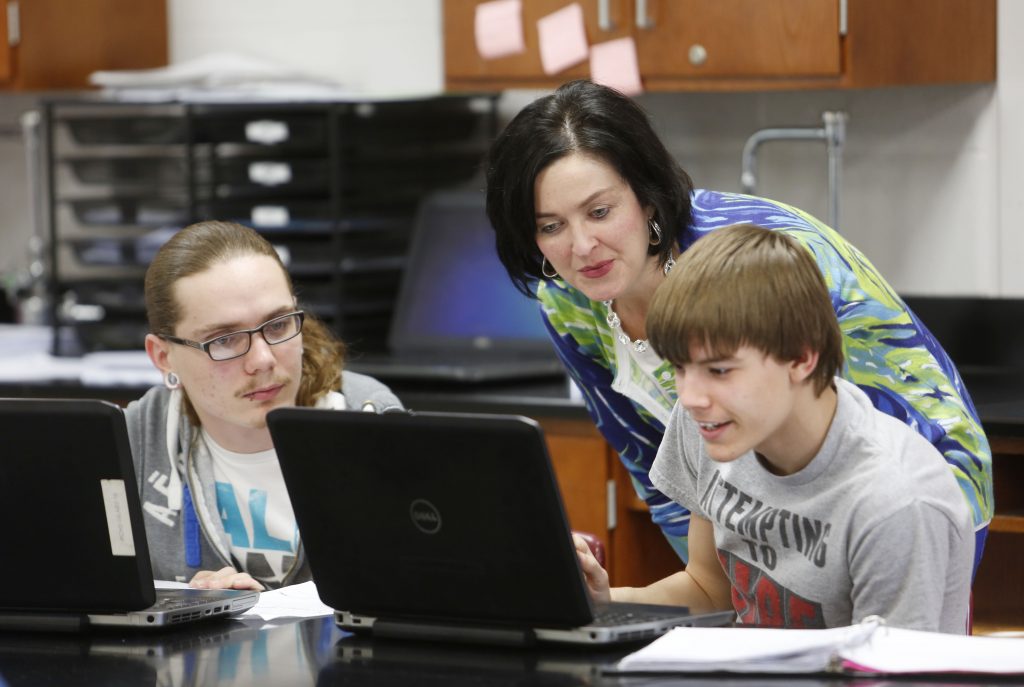Category: Tag: High-Adventure Science
By any measure, this has been one of the most stressful years on record, and teachers are among those most affected by the massive devastation wreaked by COVID-19. A recent New York Times article describes the emotional and physical toll of pandemic teaching, and we’ve heard directly from many teachers with whom we’ve collaborated for […]
The High-Adventure Science modules, first written in 2011-2013, are each based on a big unanswered question in Earth/environmental science. These six modules include interactive computer-based systems models and real-world data that students use for evidence as they develop scientific arguments. The modules incorporate real-world data from the National Aeronautic and Space Administration, National Oceanic and […]
“I love the look of amazement and confidence when someone makes connections and understands what is happening,” says Stephanie Harmon, who’s beginning her 24th year in a high school classroom. She was named Kentucky Science Teacher Association’s Outstanding High School Science Teacher in 2014, and currently teaches physics and advanced physical science and Earth science at Rockcastle County High School in Mount Vernon, and introductory astronomy at Eastern Kentucky University.
Julia LaCava was a summer intern at the Concord Consortium. A junior at Ithaca College, she majors in communications. Earth Science Week 2019 is October 13-19! The event, founded by the American Geosciences Institute, is in its 21st year and is focused on building a better understanding and appreciation for the Earth sciences for all. […]
Michael Lim loves literature that’s inspiring. “What better way to enjoy meaningful texts than to teach them?” he thought. So he earned his college degree in English education. However, when he graduated there were no jobs available. Thankfully, he also had a “few years of pre-med classes,” so he put them to good use and became a long-term substitute chemistry teacher. Michael went on to pass the chemistry certification exam, and has been teaching 10th, 11th, and 12th grade chemistry for twelve years.
Julia LaCava was a summer intern at the Concord Consortium. A junior at Ithaca College, she majors in communications. The Automated Scoring for Argumentation project, which we affectionately called “HASBot” is wrapping up. This four-year partnership between the High-Adventure Science (HAS) team at the Concord Consortium and Educational Testing Service (ETS) was funded by the […]
While a sophomore at Ithaca College, Julia LaCava wrote a novel in a month. Though she had written full-length scripts for homework, this was not a typical class assignment. She had had a story in her head for over a year, complete with a storyboard of all the characters’ emotions and playlists of songs that […]
“Thinking is hard work,” laughs Stephanie Harmon, who teaches physics, Earth science, and physical science at Rockcastle County High School in Kentucky. One of her primary goals is teaching students to think. “So much happens to us on a daily basis that we take for granted as long as everything is going okay,” she says. […]
With renewed attention to global environmental challenges, understanding how Earth’s systems work is essential to both thinking about those challenges and finding potential solutions. Teaching about human interactions with Earth systems requires that students apply relevant science concepts to these challenges. For example, students should understand the water cycle when exploring freshwater distribution, the atmospheric […]
When you live in New England in the winter, you pay attention to the forecast. Large snowstorms can make travel near impossible. Heavy snow and blowing winds can cause coastal flooding, power outages, and roof collapses. The National Weather Service (NWS) exists to “provide weather, water, and climate data, forecasts and warnings for the protection […]
